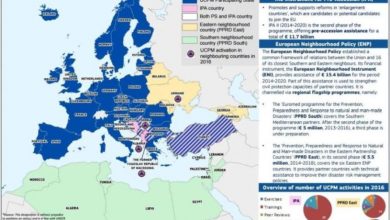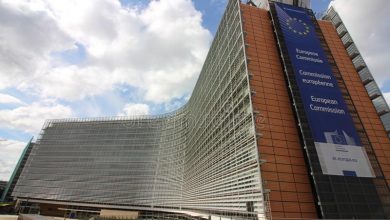European Celebration Week
“Week of the holidays” is called the current deputies of the European Parliament. There really is a reason for celebration: last Thursday in Strasbourg, the Lisbon Agreement was signed – an agreement on EU reforms, and on Wednesday the Charter of Fundamental Rights and Freedoms of the EU was proclaimed.
With the adoption of the new basic reform treaty of the European Union, replacing the draft European constitution, the Charter of Fundamental Rights and Freedoms of the EU has become legally binding on all member states, with the exception of Great Britain and Poland.
“Our community is, first of all, the community of our views, solidarity, freedom and equality – everyday life for each of us. Without the fundamental rights proclaimed today, the European Union has no future to remember ”- the words said by the President of the European Parliament Hans-Herth Pettering on December 12 regarding the declaration of the Charter of Fundamental Rights and Freedoms of the EU are quite applicable to another, no less an important pan-European document signed the next day.
Historical duty
Jose Socrates, Prime Minister of Portugal, the country currently chairing the EU, called last Wednesday for the whole of Europe. “The ceremony in which I participated was the most important of those that I saw during my political career,” he admits. – When signing the Charter of Fundamental Rights and Freedoms, I felt proud that I am a European. I’m also proud that this event happened during the Portuguese Chairmanship, and I’m especially proud that the development of the current charter also began during our chairmanship. ”
The head of the European Commission, Jose Manuel Barroso, noted that the step taken on December 12 confirms the responsibilities that were adopted at the EU Summit seven years ago in Biarritz. The EU Charter of Fundamental Rights and Freedoms is designed to guarantee the rights of citizens of member states. While fundamental human rights are already enshrined in the constitutions of individual countries, the EU Charter guarantees citizens more rights over European legislation. It contains, for example, such provisions as the right to seek work within the European Union, restriction of access to personal data, prohibition of discrimination based on age, access to education, and others.
With the adoption of the new basic reform treaty of the European Union, which replaced the draft European constitution, the Charter of Fundamental Rights and Freedoms of the EU became legally binding for all member states, with the exception of Great Britain and Poland: they managed to ensure that the document does not apply to them . Such a “selective approach”, as well as insufficiently democratic, according to individual deputies, the principle of the adoption of the charter caused dissatisfaction with a number of MEPs. During the ceremony, several times from the back rows of those present there were heard demands for a referendum. The behavior of those seeking to disrupt the event was condemned by the leaders of most factions of the European Parliament.
More Europe!
The hope that the signing of the Lisbon Agreement would put an end to the contradictions and difficulties that had to be encountered in 2005 was voiced by J. M. Barroso during the discussion of the EU reform treaty. Portugal’s Secretary of State for European Affairs, Manuel Lobo Antunes, also added that the early ratification of the document would allow it to enter into force by January 1, 2009. “The Lisbon Agreement creates the borders for the entire Union, within which Europe will be able to cope with such global challenges that it faces, such as controlling labor migration or climate change.
“The signing of the Lisbon Agreement completes a two-year period of instability, provides an opportunity within the next two years to begin to resolve existing problems using new approaches and methods,” said Joseph Dol, a European MP from France. “Ratification of the document gives us a chance to reflect on issues such as internal security resulting from the expansion of the Schengen visa-free space.” According to his colleague from Germany Martin Schulz, the signed agreement is also the “key” to resolve the situation with the acceptance by EU countries of immigrants from third countries. At the same time, he noted that the signatures left on paper alone cannot solve all difficult situations, and expressed the hope that “after the wedding, there will still not be a divorce.”
Deputies of the European Parliament also emphasize that the signing of the Lisbon Accords was not just a formal step or protocol necessity, but also expresses the aspirations of the EU member states themselves and their people. “Europeans really want“ more Europe, ”said Brown Crowley, a member of the European Parliament from Ireland. “But no more bureaucratic restrictions and prohibitions, but a clear, accessible, and sensible Europe!”
This post is also available in:
 English
English  Русский (Russian)
Русский (Russian)






